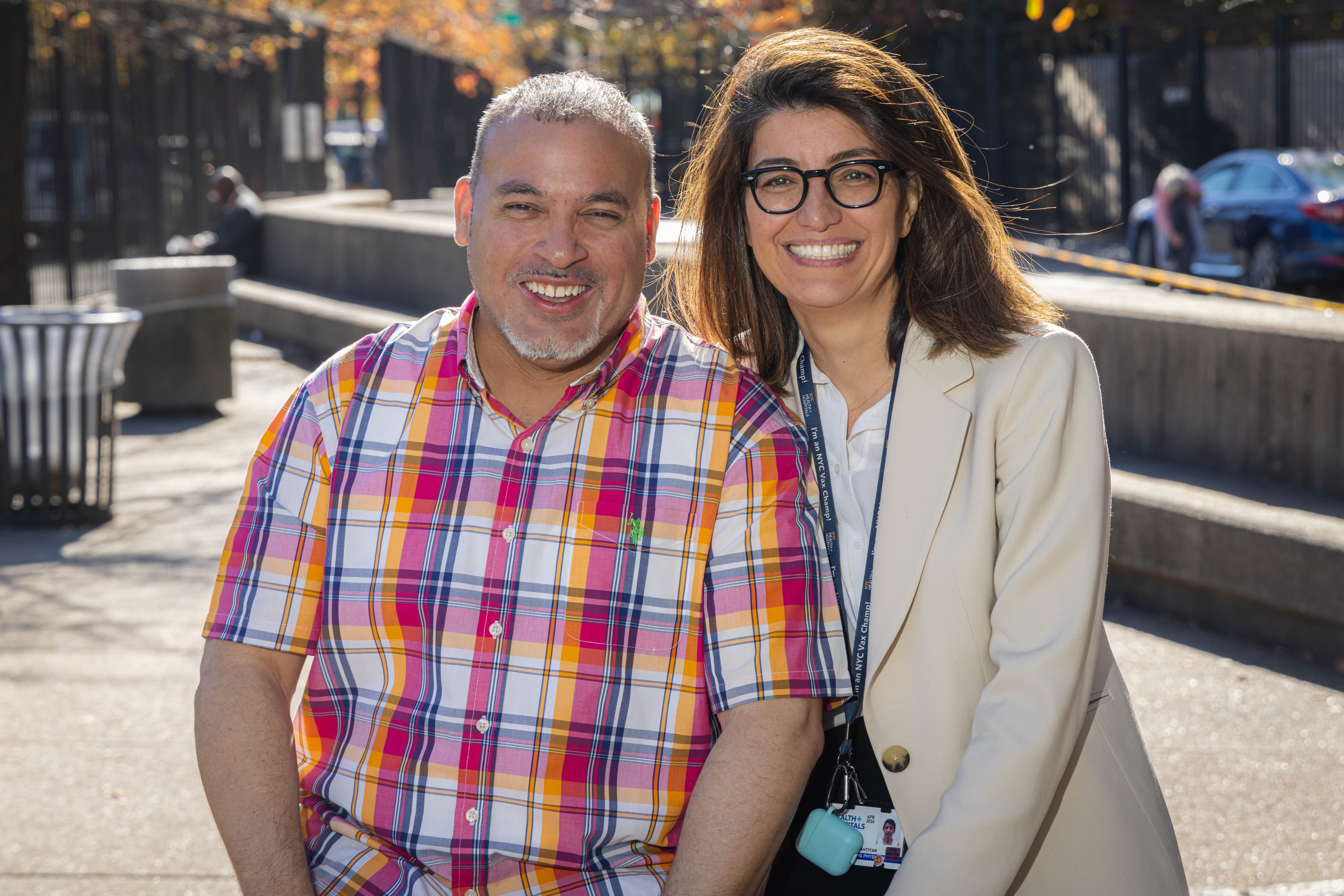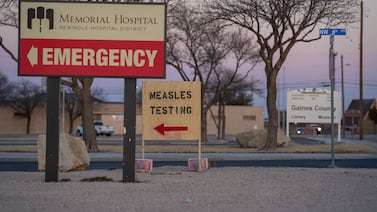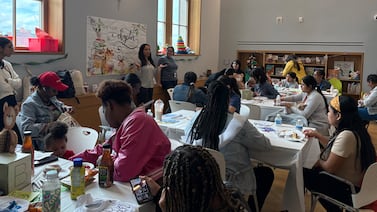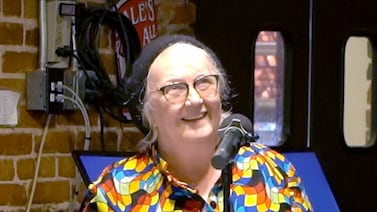Public health, explained: Sign up to receive Healthbeat’s free New York City newsletter here.
New York city’s public hospital system is joining the “food as medicine” movement, offering “prescriptions” for free boxes of fresh produce — tomatoes, potatoes, broccoli, peaches, bok choy, and fennel — delivered to patients’ homes each month for six months.
More than 500 patients have enrolled in the Lifestyle Medicine Program’s produce box initiative since its August start.
The program focuses on food, as well as other social determinants of health like exercise.
“It’s not just about nutrition, but also physical activity, sleep, stress, because it’s all connected,” said Dr. Michelle McMacken, executive director for nutrition and lifestyle medicine at NYC Health + Hospitals.
The program is related to the emerging food as medicine trend, which acknowledges that many chronic health conditions, such as type 2 diabetes, high blood pressure, and concerns related to excess weight, can be at least partially managed through diet and exercise.
According to a 2023 study, poor diet is associated with 18.2% of cardiovascular issues and type 2 diabetes, and according to the Rockefeller Foundation, an estimated $13.6 billion in health care spending could be saved annually if all eligible Americans received medically tailored meals, nutritionally customized for their specific needs.
Samuel Rios, an administrative assistant at Con Edison, was diagnosed with pre-diabetes in 2020. A few months later, the pandemic hit and kept everyone indoors. Rios started to “binge on candy, and drink those very sugary Snapple iced tea drinks by the gallon.”
In 2021, he was admitted to Mount Sinai Hospital with blood sugar levels over 700. The doctors prescribed insulin, but he refused to take it. He thought he could beat diabetes on his own.
“It wasn’t very smart of me. I wasn’t [testing] my blood sugar daily. I was eating things I shouldn’t eat,” he said. He fell back into his bad habits: McDonald’s, KFC, french fries, “all the stuff that gets you in trouble.”
On Feb. 8, 2024, Rios felt dizzy, his vision got blurry, and he fainted. His kidneys had started failing, and his blood sugar levels spiked to over 900. He had to be hospitalized at NYC Health + Hospitals/Woodhull.
Over a year later, Rios, 49, has developed new eating habits. Instead of Big Macs and buckets of fried chicken, now he regularly makes his own pesto from fresh basil and olive oil, and eats salad daily. In six months, he has seen his A1C — his average blood sugar levels — improve from 11.3% to 5.7%, and he no longer needs insulin injections.
“This program saved my life,” Rios said.
The produce prescription is not the only perk of the program.
Participants have one-on-one counseling sessions with physicians and nurse practitioners, dietitians, health coaches, and other experts. Fitness instructors give them exercises. Psychologists help them look at the mental aspects of eating behavior. For patients who are financially insecure, community health workers can help find a food pantry or apply for Supplemental Nutrition Assistance Program benefits.
Participants receive counseling on sleep routines, because people who are sleep deprived are much more likely to desire high-calorie foods, research suggests.
They also meet in weekly group support sessions with others trying to achieve better health through lifestyle changes.
“The nutrition science is extremely clear that the foods that we eat are among the most important factors determining our long-term health and our risk of chronic disease,” McMacken said. “What’s challenging is helping people make those changes, especially when they’re facing financial constraints, when they have difficulty accessing some of the foods that we know are the healthiest foods.”
Research shows produce prescriptions yield health benefits
Food as medicine is not a new idea. Hippocrates advocated for it back in the fifth century BCE. But in the past decade, it has gained momentum and the backing of health care providers, said Alexina Cather, interim president of the NYC Food Policy Center at Hunter College. Thanks to a 2016 Medicaid modification, some states allow doctors to screen for food insecurity, provide nutrition education, and provide healthful food to low-income patients.
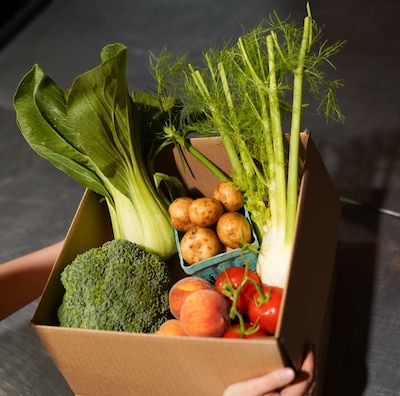
The Lifestyle Medicine Program at NYC Health + Hospitals began as a pilot at Bellevue Hospital. More than 850 patients enrolled, and in a 2023 study, doctors there documented positive health outcomes. After six months, participants reported an average of 2.4 fewer barriers to adopting a plant-based diet (such as not knowing what to eat that is plant based, or how to prepare those foods). Their physical activity increased by 0.7 days per week, and the number of participants who reported “good” or “very good” quality of sleep increased by 12.2 percentage points.
In a separate 2023 study, researchers also highlighted clinical improvements. Patients with prediabetes or were overweight or had obesity lost weight, and those with type 2 diabetes also saw improvements to their blood sugar levels.
Research conducted elsewhere also suggests that these programs can be effective. A 2021 Penn State study found that after seven months of using vouchers to buy fruits and vegetables, people’s blood sugar levels went down 1.3%. Another study, from Tufts University, showed that after six months of a produce prescription, patients were eating nearly an additional cup of fruits and vegetables daily. The odds of being food insecure also dropped by one-third.
A similar program in the Bronx ran from February 2023 to May 2025, when grant money from the National Institute of Food and Agriculture ran out. Bronx Health REACH, a non-profit organization that aims to eliminate racial and ethnic health disparities, in partnership with the Corbin Hill Food Project, a Harlem-based nonprofit, sold vegetable boxes worth $35 for $2.50 to patients at its affiliated clinics.
The program was a success — some people lost weight, and many lowered their blood pressure and cholesterol levels, said Kenny Escobar, nutrition and physical activity coordinator for Bronx Health REACH.
Not everyone has time or resources to prepare healthy meals
Some experts warn that it can be simplistic to imagine that six months of receiving vegetable boxes and cooking advice can fix complicated structural problems that afflict the health of many people with low incomes from marginalized communities. People who are working two jobs, or taking care of children, may not have time to cook or have access to utensils and a functional stove.
“In 2020, some NYCHA housing units didn’t have heat and gas for months,” Cather said of the New York City Housing Authority. “If you just gave them a bunch of food that they needed to cook, they wouldn’t be able to do that.”
A few of the patients served by Bronx Health REACH reported that they didn’t have enough time to cook vegetables like rainbow Swiss chard, which takes a lot of time to soften. “One patient told me that she would want to utilize these things, but she just doesn’t have time to prepare them,” Escobar said.
For patients who have the time and resources, produce prescriptions can be life changing. After his emergency hospitalization, Rios, who lives at the border of Bushwick and Williamsburg, weighed 292 pounds. At weekly meetings with dieticians and other patients in the program, he learned step by step how to control food portions, go light on olive oil, make salad, and find protein sources other than meat. He learned that he can still eat pasta, but the whole wheat kind is better, as plain pasta “can shoot up your glycemic levels.”
The first meal he learned to cook was lentil soup. He relishes his salads with beans and chickpeas.
“My taste buds have changed. The program allowed me to reboot my mind frame,” he said. “I know that that cheeseburger and fries at McDonald’s taste good, but do I really want my A1C to go up again? Nah, you know what? I can have my broccoli and my asparagus, and I add a little flavor to it, squeeze a little lemon, and have my little fish, and I’m fine with that.”
When family members tempted him with pizza or cake, knowing he would be meeting every week in a support group helped him stick to his goals. “The meetings are like AA meetings because you’re able to sit there with others who are going through the same thing as you, and there’s no judgment,” he said.
Rios has lost 75 pounds, which has helped not only his diabetes but also reduced his sleep apnea and joint inflammation. “I have the energy to walk,” he said. “I take long walks, and it’s just night and day for me.”
This story was produced in partnership with the Health & Science Reporting Program at the Craig Newmark Graduate School of Journalism at CUNY.

